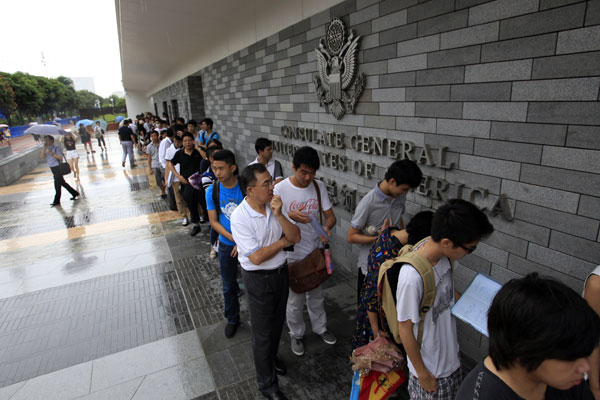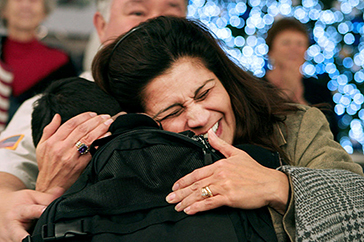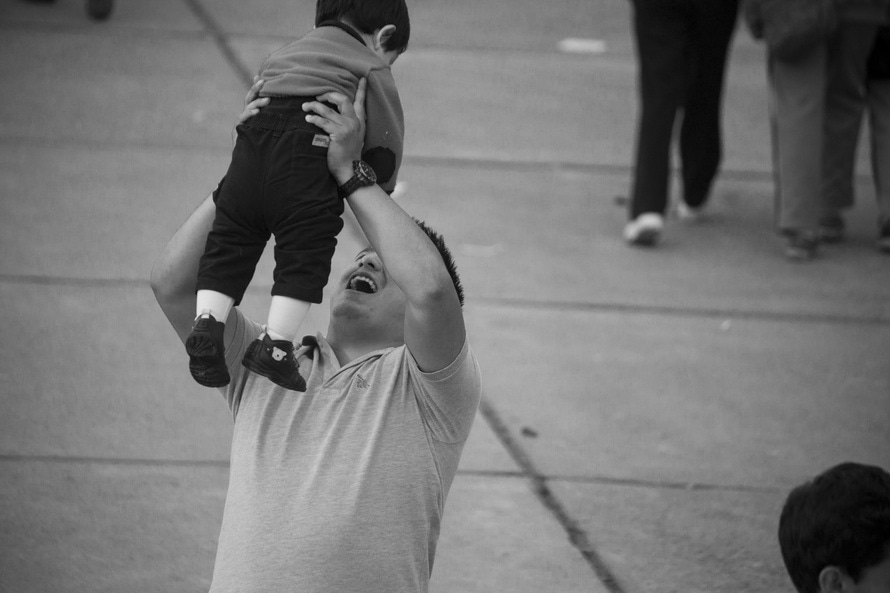Many thousands of people entered the US through a border, either Mexico or Canada, and many others entered with a visa but the entry permit (I-94) has expired. Now If any of these people are either married to a US citizen or Lawful permanent resident or is a son or daughter of a U.S. citizen or resident, he or she cannot adjust their status in the US. In other words, they must travel to the US consulate in their home country to make a proper entrance. Here’s where it all falls apart.
The 1996 Illegal Immigration Reform and Responsibility Act (IIRAIRA) created a three-year, ten year, and permanent bars on admission to the U.S. for an assortment of immigration status violations.
The three-year bar to re-entry into the U.S. applies to persons who have been unlawfully present in the United States for a continuous period of more than 180 days (6 months), but no more than one year, and who voluntarily depart the U.S. Departing the U.S. activates the bar, even if the trip is to a consular process to obtain an immigrant visa.
The ten-year bar to re-entry into the U.S. applies to individuals unlawfully present in the U.S. for a cumulative period of one year or more who depart voluntarily Unlawful presence begins to accumulate when the period of authorized stay elapses or after entry to the U.S. without inspection. In other words, you will not be permitted to return to the US for either 3 or 10 years.
Now, if you entered the United States illegally through the borders such as by sneaking in through Mexico or Canada, in almost every case, will not be allowed to receive your Green Card in the U.S. If you entered with a visa but overstayed your visa (except for immediate relatives), you will also not be allowed to receive your green card in the United States (adjustment of status).
In these cases, you will go through the process called Consular Processing. This process begins with the completion of form I-130 and filing it with the Immigration Service. After some months, if all the paperwork is correct you will receive a NOTICE OF APPROVAL. A copy of the NOTICE OF APPROVAL will also be sent to the National Visa Center. They will send you a package to complete the forms. It consists of a set of forms that sets forth the steps that you are to follow and a notice that you must establish that you will not rely on public assistance once you are in the U.S. and a form to be completed by the sponsor which is a biographical data form. You will complete the forms immediately and send to the consulate. You will then gather all the documents required and have them available when you are called for an interview.
There are limited Exception to this bar
1. If you or your parents (while you were under 21 years of age) filed a permanent visa application with the Immigration and Naturalization Service or Labor Department before April 30, 2001, you are protected from this law and will be allowed to receive your Green Card in the United States by paying a fine of $1,000. This is called Section 245(i) adjustment.
2. Children under 18 years of age;
3. Spouse children (under 21 years of age) and parents who entered with a visa;
4. Most people who filed a case with the Labor Department or the Immigration and Naturalization Service for Permanent Residency before April 30, 2001.
Understand this clearly. There is no waiver for a parent of US citizens or lawful permanent residents.
For those that fall into this category, there are limited waivers available for those that want to return in less time.
The 601 waivers are required to be submitted in order to overcome an inadmissibility bar for a prior visa overstay, misrepresentation, fraud, or certain crimes.
An immigrant visa applicant who is ineligible for a visa under INA 212(a)(9)(B) “Unlawful Presence” may not apply for a waiver unless he or she is the spouse or son or daughter of a U.S. citizen or lawful permanent resident (LPR). A waiver under INA 212(a)(9)(B)(v) will be granted in such a case only if the applicant can establish that denial of his or her admission would result in extreme hardship for the U.S. citizen or LPR.
Extreme Hardship is a vague concept and at times, difficult to prove.
The factors considered relevant in determining extreme hardship to a qualifying relative include, but are not limited to, the following: the presence of United States citizen or lawful permanent resident family ties to this country; the qualifying relative’s family ties outside the United States; the conditions in the country or countries to which the qualifying relative would relocate and the extent of the qualifying relative’s ties to such countries; the financial impact of departure from this country; and, finally, significant conditions of health, particularly when tied to an unavailability of suitable medical care in the country to which the qualifying relative would relocate. Matter of Cervantes, 22 I. & N. Dec. 560, 565-566 (BIA 1999).
To establish extreme hardship, it is required to demonstrate that the qualifying relative is suffering more than the usual or typical hardship that a family member would experience if their relative cannot return to the U.S. Establishing financial hardship alone is not enough. The U.S. citizen/permanent resident relative and not the non-citizen applicant must experience the hardship. It must go beyond that normally expected in cases of family separation. Successful applicants will have to demonstrate unusual hardships to the U.S. citizen/permanent resident relative, such as a major medical conditions (physical and/or mental); Relative is caring for an elderly, chronically ill, or disabled relative who needs constant care; Relative is the primary caregiver for his/her child(ren) from a prior relationship and the child(ren)'s other parent will not allow the children to be taken out of the country and the child(ren) have formed an emotional attachment to Alien lack of the U.S. citizen/permanent resident’s family ties to the applicant’s country of origin; ability to speak the applicant’s native language; financial considerations; loss of opportunity in applicant’s country of origin, etc
There are two types of I-601 Waiver:
1. I-601 Waiver is used when the beneficiary is living abroad. Learn more.
2. I-601A Waiver is used when the beneficiary is living in the United States. Learn more.
Many people, when confronted with having to file a waiver of inadmissibility, try to do it on his or her own, rather than seeking the advice or guidance of an attorney. While hiring an attorney does not “assure” approval, it certainly goes a long way in obtaining an approval; especially if the attorney has great experience in this area of the law. The determination and evaluation of extreme hardship can be a complex and complicated task. Putting together a successful presentation is also extremely important. The rewards are so high when applying for a 601-waiver applying for them because if a person is denied a fraud waiver, it could result in a lifetime ban. If the 3/10-year bar waiver is not approved, the relative may not be able to apply for a visa to enter the US for at least 10 years.
That is why when you have something as difficult as a waiver of inadmissibility, you should seek the advice and support of an immigration attorney, instead of doing it on your own. Trying to figure out how to prove “extreme hardship” by attempting to prepare the waiver on your own could have lifetime problems for your relative.
`













